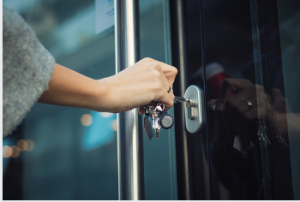There are several reasons to install security doors in your home. Some of them include cost, durability, and style. Let’s look at a few of them. First, they should be made of thick-gauge steel for the best protection against intruders. Thieves can pry open doors made of lightweight alloys, so you should go for steel security doors. Moreover, steel security doors will stand the test of time and will not break easily.
Keeping insects away
 Insects are a nuisance indoors and out. Not only do they ruin outdoor activities, but they are also an essential source of disease. Mosquitoes, mainly, are notorious for carrying diseases such as the Zika virus. So it makes sealing your doors and windows a critical part of pest control. These doors and windows can help you eliminate the problems with insects and are a great way to increase your home’s safety.
Insects are a nuisance indoors and out. Not only do they ruin outdoor activities, but they are also an essential source of disease. Mosquitoes, mainly, are notorious for carrying diseases such as the Zika virus. So it makes sealing your doors and windows a critical part of pest control. These doors and windows can help you eliminate the problems with insects and are a great way to increase your home’s safety.
Insects are annoying inside the house, especially during warm seasons. Using a security door can keep them away. During the warm months, mosquitoes are incredibly annoying. You can reduce your energy bill and environmental impact by reducing their number. And while they may not seem as annoying as insects, they can be a real nuisance. With a security door, you can be sure that the bugs will be kept out.
Another significant benefit of security screens is that they discourage insects. Insects do not like bright lights and can cause an esthetic problem, but you can eliminate the need to use artificial lighting to combat the problem. By preventing these pests, you can enjoy the fresh air that comes with an open window and save money on your energy bill. Installing an insect screen allows you to enjoy the benefits of security doors and screens without worrying about intruders.
Durability
While the lifespan of security doors SA can vary, most are rated to last at least 30 years. While the lifespan of security doors varies with their usage, construction, and external factors, they provide lasting protection from the elements. It includes energy efficiency and scratch resistance. To maintain the longevity of your security doors, it is essential to follow a few tips:
The material of security doors can either be solid or hollow. The former offers the best soundproofing and structural security but also tends to cost more. Hollow metal doors are cheaper but still provide the same level of protection. Check the product certifications of security doors to determine whether they meet government standards for safety. Additionally, look for doors that are fire, smoke, or ballistic rated. These doors will help protect your property from all three.
Another critical factor is the quality of metal used in the security door. Steel is the most common type of metal used for this purpose. Regardless of thickness, a high-quality steel sheet will resist rust and corrosion. Also, be sure that the security lock is solid and appropriate for the environment in which your security doors will be installed. Finally, the right security lock is equally essential. Security locks are designed to withstand varying conditions. By choosing a security lock made of stainless steel, you can rest assured that your home is protected against burglars.
Cost
The cost of installing security doors varies based on the material they are made of. For example, a standard steel security door is about $300-700, while a solid hardwood door can cost upwards of $900. A solid hardwood door is typically two inches thick. Some doors are more expensive, however, and require professional installation. Other materials used to create security doors include wrought iron and exotic wood species. A high-quality hardwood door should be at least one to two inches thick for the best security doors.
The price of security doors depends on the type and quality of the material used. For example, solid, non-hollow doors are more challenging to break down than hollow doors. However, doors with glass are particularly susceptible to attack. “Glass” security doors are costly because they are made of glass with cut-and-shatter evidence. A thin mesh screen is another type of security door. In addition to security doors, these doors can be equipped with a specialized screen to permit ventilation.